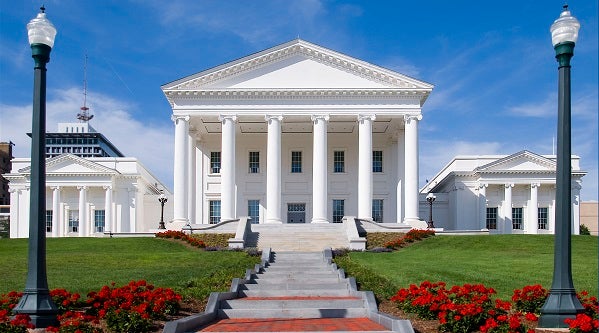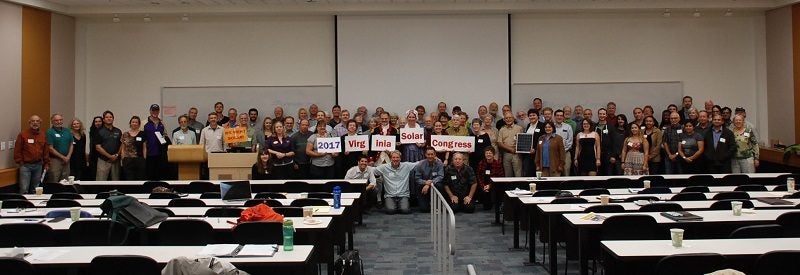Solar bills come up short in Virginia General Assembly

It’s impossible to decipher the outcome of solar bills in the 2018 Virginia General Assembly session without first understanding that our monopoly utilities still have the deck stacked in their favor in the legislative process. While the momentum is on the side of our growing solar movement, we still face an uphill battle against legislators that put the interests of utility shareholders over their constituents’ solar rights. As a result, this session will end without any new victories for solar supporters—but also, thanks to the actions of our growing army of solar supporters, no new attacks on your solar rights either.
More and more Virginians are demanding the clean and democratic energy system that we deserve—with rooftop solar as the cornerstone. But to build this new energy system, we must tell our representatives that we’ll no longer stand for monopoly utilities getting unfair advantages over the customers they are supposed to serve!

Virginia Declaration of Solar Rights
Common sense solar legislation blocked again, but our solar movement is still gaining power
After earning policy wins last fall by advocating for solar in the Rubin Group and minimizing fixed charge increases for Rappahannock Electric Cooperative member-owners, we set our sights on the 2018 General Assembly. Hundreds of you acted by contacting your representatives to let them know that you’re a solar voter, flooding Richmond with thousands of emails declaring your solar rights and supporting specific solar-friendly legislation.
A full docket of common sense solar bills were proposed in January, at the outset of the 2018 legislative session. Among them were bills that would have removed the arbitrary limits on solar production, expanded market options for nonprofits and multi-family dwellings, and increased net metering available for customer-owned solar. However, despite broad public support, almost none of these bills made it through the committee process—if they even got a hearing at all. In other words, a small group of legislators beholden to utility interests acted as gatekeepers, preventing solar bills from being considered by the full House and Senate. This session, we focused on two solar bills that would have made small but important gains for energy freedom in Virginia. One bill (SB 191) would have raised the cap on net-metered system sizes for homes and businesses going solar to 125% of the previous year’s consumption (above the current 100% cap), while the other (HB 1252) would have expanded access to third-party purchase agreements for nonprofit solar installation in Appalachian Power Service territory. Both bills ultimately stalled out and were unsuccessful in the 2018 session.
The committees that oversee energy legislation—Commerce and Labor in both the House and Senate—are heavily influenced by the interests of our monopoly utilities. While we’ll examine how this influence shapes legislative outcomes at the committee level in a future post, a great example can be found in the case of Dominion’s top legislative priority this year—the controversial “rate freeze” bill that overhauls utility regulation regime. Despite public scrutiny over a lack of consumer protections and costly last-minute negotiations, the bill was passed and signed into law while several important pieces of solar legislation were left to collect dust.
While the finished product was amended to protect Virginia ratepayers from the feared “double-dipping” by Dominion Energy, its ultimate success demonstrated the power still held by the utility over our legislative process.
Despite some progress won through the hard work of solar supporters around the Commonwealth, the deck remains stacked against customer-owned “distributed” solar in Virginia. We know why Virginia’s monopoly utilities fight rooftop solar, and we’ll be exploring the question of how they do it in future post. But the results of the 2018 General Assembly are a perfect example of what we can expect from the current system.
The good news is that you can help change it
This is why we will continue to grow our solar army and fight for our solar rights in the Commonwealth. More and more Virginians are seeing the solar future. Solar jobs continued to grow in Virginia last year despite stagnation nationally. And, most importantly, you continue to make your voice heard in Richmond.
Let your representatives know that you’re a solar voter today!
